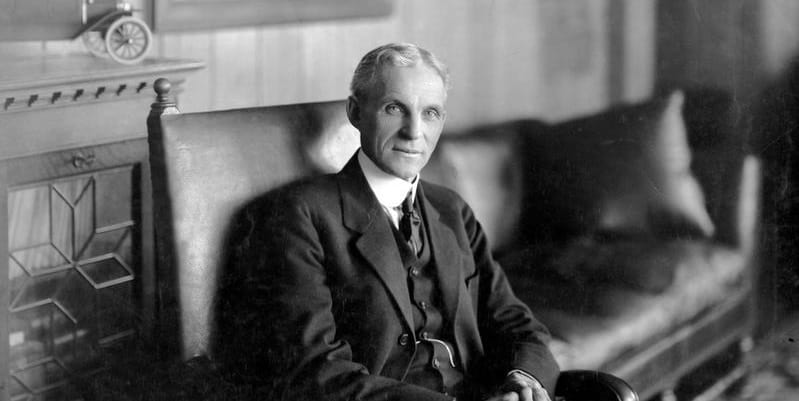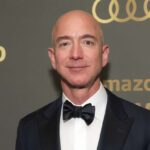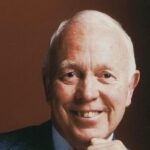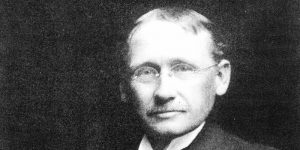Henry Ford biography and quotes

Henry Ford (30 July 1863- 1947) was an American influential industrialist who revolutionized the automobile production industry by being the first to utilize economies of scale manufacturing methods. Henry Ford introduced large manufacturing plants and used standardized components. In doing so, he changed the life of many people that now have access to a car. His assembly set-up and techniques were the standards for the first half 20th century.
Who is Henry Ford? His biography
Henry Ford was born in a farmer’s family what in that time was a normal way of living for most people. During that time, it was assumed that only two out of ten American lived in cities. His family comprised ten family members, including his parents.
He went to a one-room school, a school where all students meet in a single room with the attendance of a single teacher who taught all academic basics to several grade levels, for eight years when he did not have to help his father farming.
Henry Ford left the farm for three years in 1879 to work in Detroit in machine shops. He learned about the internal-combustion engines which have triggered him to establish his own small machine shop at his farm where he eventually built a farm locomotive.
Next to his projects, he also worked part-time for Westinghouse Engine Company.
Henry Ford married Clara Bryant, who had grown up on a nearby farm, in 1888. The couple moved to Detroit where he became Chief Engineer at Detroit Edison Company within two years.
It was an irregular job in which he had to be available for 24 hours per day. In his spare time, he always used to work on his projects.
Henry worked on various projects such as his first gasoline engine that he completed by 1893.
In this time, many other car inventors only built limited amounts of cars that were designed for wealthy consumers. Henry Ford saw an opportunity in his Quadricycle, a vehicle that ran on four bicycle tires with an engine driving the back wheels.
Even though he was not the first who built a self-powered vehicle, he sold his projects to build new vehicles. He used this strategy for years and he built a network of with which he and eleven business partners eventually established Detroit Automobile Company, later changed to Henry Ford Company.
He had not invested in stock but he contributed with his knowledge and patents. However, Henry Ford’s ideas about improving the car that he worked on were not in line with the stakeholders’ ideas of Henry Ford Company who wanted to build passenger cars.
Ford Motor Company
Consequently, in 1902, Henry Ford left the Henry Ford Company, which immediately changed their name to Cadillac Motor Company, to work on his own vehicle.
When his vehicle was ready to be launched in the market in 1903, he established the Ford Motor Company with limited resources.
Ford Motor Company was a huge success but soon legal barriers occurred. The automobile manufacturing industry was becoming a major industry, and for this reason, Henry Ford refused to pay licensing fees to the Manufacturers Mutual Association (MMA) because he believed that inventions are part of evolutions.
Ford Motor Company lost the case in 1909 but won in the appeal court in 1911. His actions made him a well-known man, and his victory was about to change the whole automobile industry.
Henry always wanted to build a car for the great multitude. His mission was to create affordable and accessible for most people, and for this reason, he created Model T in 1908. Model T’s operation went smoothly and had reached a global sales volume of almost 17.000.000 in a time of nineteen years.
The availability of Model T caused a transformation in the lives of many people since these people were previously dependent on horses for transport due to remote farms. Model T replaced the horse, and together with other automobiles, boosted the economy.
Ford Motor Company success was also demonstrated when Henry Ford increased the salaries for his workers to more than 200 percent of average minimum wage and reduced the working hours.
This was implemented after Ford Motor Company signed a contract with the UAW-CIO, an American labor union that represents the workers of the United States, in which they agreed to guarantee better pay, benefits, and working conditions for employees.
Henry Ford continued developing his mass production techniques. He realized economies of scale and was able to offer lower prices.
His success with the production of approximately hundred cars per day could not satisfy him individually. In fact, even though the stakeholders felt delighted with this output, Henry Ford wanted to expand the business.
Various stakeholders did not want him to use profits for expansion, and he was taken to court for preventing the expansion, but they did want him to run the company.
He wanted to possess his own company, and for this reason, he bought out all minority shareholders and owned all the shares of the company in 1920.
By this time, he already has seen the shortages of raw materials caused by World War 1. This was the reason why he now focused on a self-sufficient plant. Henry Ford established River Rouge, a production plant that turned parts at one end into finished cars at the other, including glass, steel, and other necessary components.
He diminished manufacturing costs by accessing full control over transportation by purchasing a railroad and fleets. The organization continued expanding its business, and by 1927, it was already operating in more than 33 countries.
Henry Ford was a stubborn person. Even when other automobile manufacturers were including the newest technologies in their vehicles, Henry Ford did not follow them. He eventually had to shut down the business to retool its plant to keep up with the market’s demand. He introduced the new car Model A in 1927 to keep up with consumer’s needs and wants but it was not a success; it stopped producing in 1936.
In addition, the Great Depression occurred in the 1930s and caused a tremendous decline in sales. The setback forced Henry Ford to lower wages below average minimum wage. Henry Ford struggled to keep his operations running.
He eventually had to retire because of his health problems. He experienced heart attacks, and his health was continuously down-sloping while the business simultaneously experienced difficulties. The job was too demanding for Henry Ford, and for this reason, he transferred the business to his grandson Henry ford 2nd.
Henry Ford additionally taught dances like the Polka, the Mazurka, and Virginia reel. He also established village factories and built one-room schools.
Henry Ford sponsored radio hours on which essays were read to listeners. He also built Greenfield Village, a restored rural town, and the Henry Ford Museum with American artifacts and antiques of his youth.
He always believed in fair opportunities and highly values honesty and respect. Because of this, he was awarded the Gold Medal for outstanding contributions to the welfare of humanity. Henry Ford was also honored at the American Automotive Golden Jubilee for his contribution to the motor industry.
At this moment, Henry Ford is memorized by the various organizations that have been established. His stock went to the Ford Foundation, an organization committed to advancing the human welfare, established by him and his brother.
Ford Health Systems
Henry Ford also founded Henry Ford Health Systems, an organization committed to improving the health and well-being of individuals by providing hospitals and medical centers.
Furthermore, the Henry Ford Village, a senior living community, is named after Henry Ford and it represents the place of birth of him.
Famous quotes
- “My best friend is the one who brings out the best in me.”
- “Coming together is a beginning; keeping together is progress; working together is success.”
- “Failure is simply the opportunity to begin again, this time more intelligently.”
- “If everyone is moving forward together, then success takes care of itself.”
- “Obstacles are those frightful things you see when you take your eyes off your goal.”
- “You can’t build a reputation on what you are going to do.”
- “Nothing is particularly hard if you divide it into small jobs.”
- “One of the greatest discoveries a man makes, one of his great surprises, is to find he can do what he was afraid he couldn’t do.”
- “A business that makes nothing but money is a poor business.”
- “Even a mistake may turn out to be the one thing necessary to a worthwhile achievement.”
- “Whether you think you can, or you think you can’t–you’re right.”
- “Anyone who stops learning is old, whether at twenty or eighty. Anyone who keeps learning stays young.”
- “Vision without execution is just hallucination.”
- “Any customer can have a car painted any colour that he wants so long as it is black.”
- “Quality means doing it right when no one is looking.”
Publications and Books by Henry Ford et al.
- 2007. My life and work. Cosimo, Inc.
- 1988. Today and tomorrow.
- 1898. The Rise and Growth of American Politics: A Sketch of Constitutional Development(Vol. 3). Macmillan Company.
- 1977. Advanced mechanics of materials(p. 406). Chichester: Ellis Horwood.
How to cite this article:
Zeeman, A. (2018). Henry Ford. Retrieved [insert date] from Toolshero: https://www.toolshero.com/toolsheroes/henry-ford/
Original publication date: 04/19/2018 | Last update: 04/11/2023
Add a link to this page on your website:
<a href=”https://www.toolshero.com/toolsheroes/henry-ford/”>Toolshero: Henry Ford</a>











